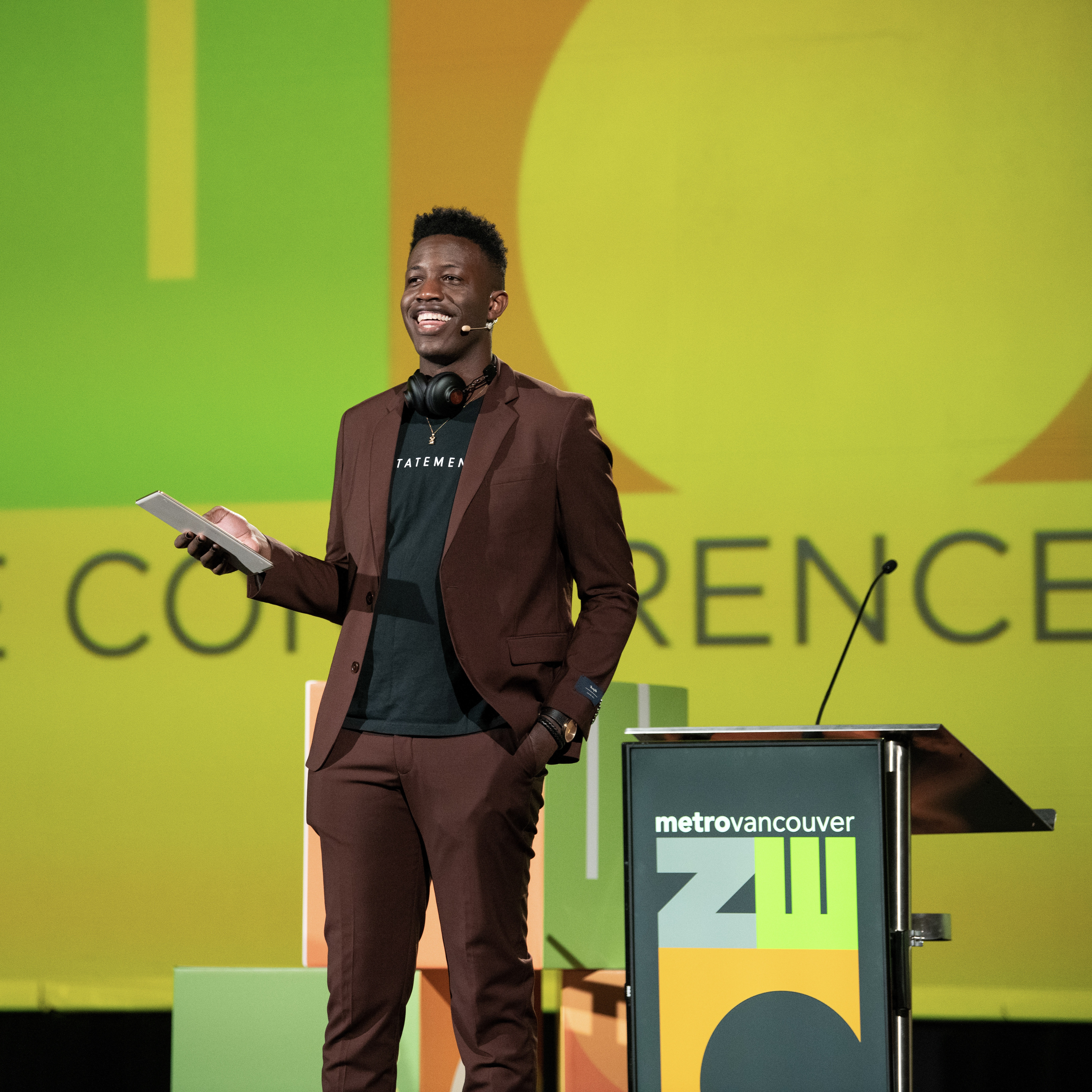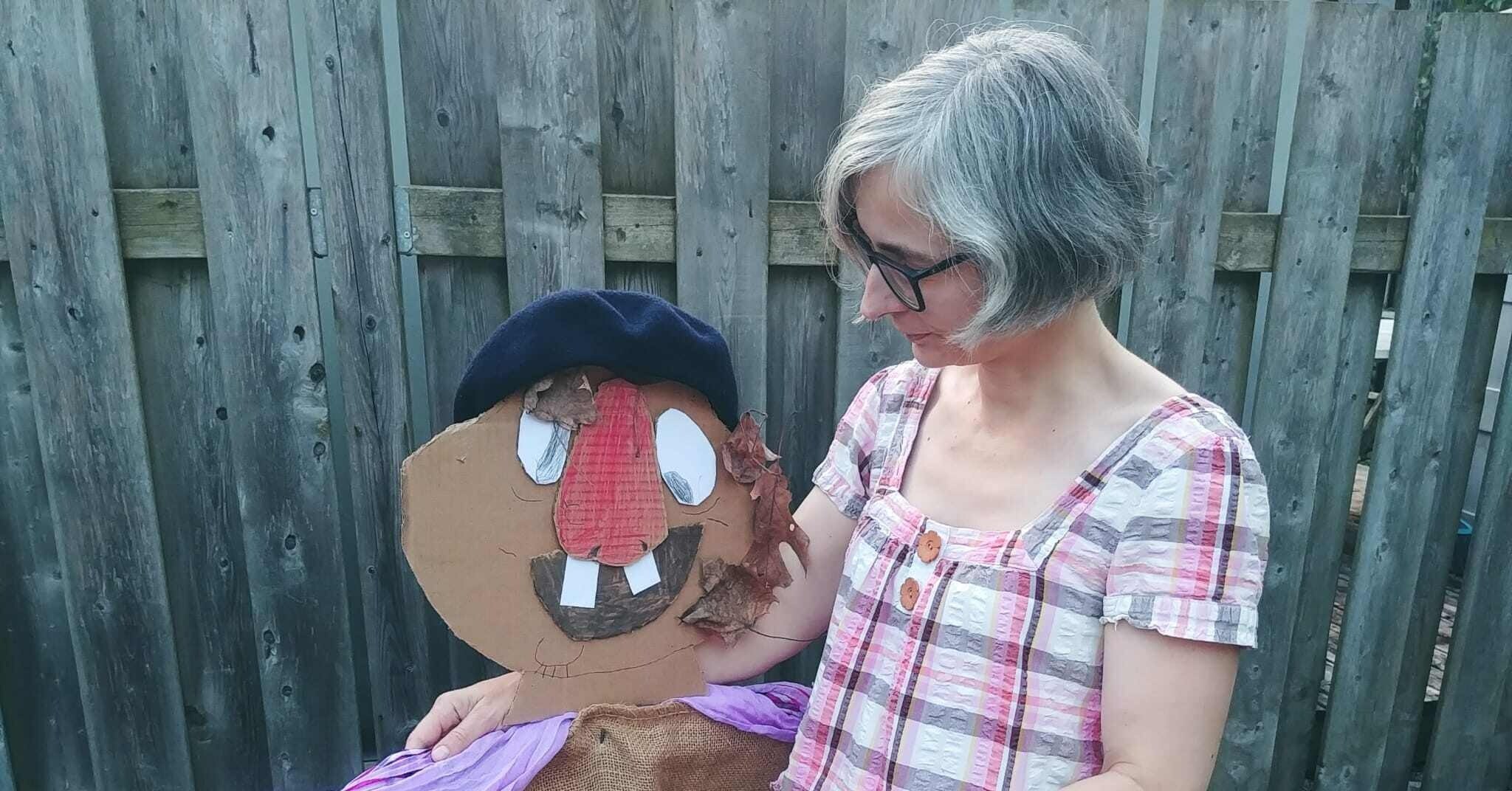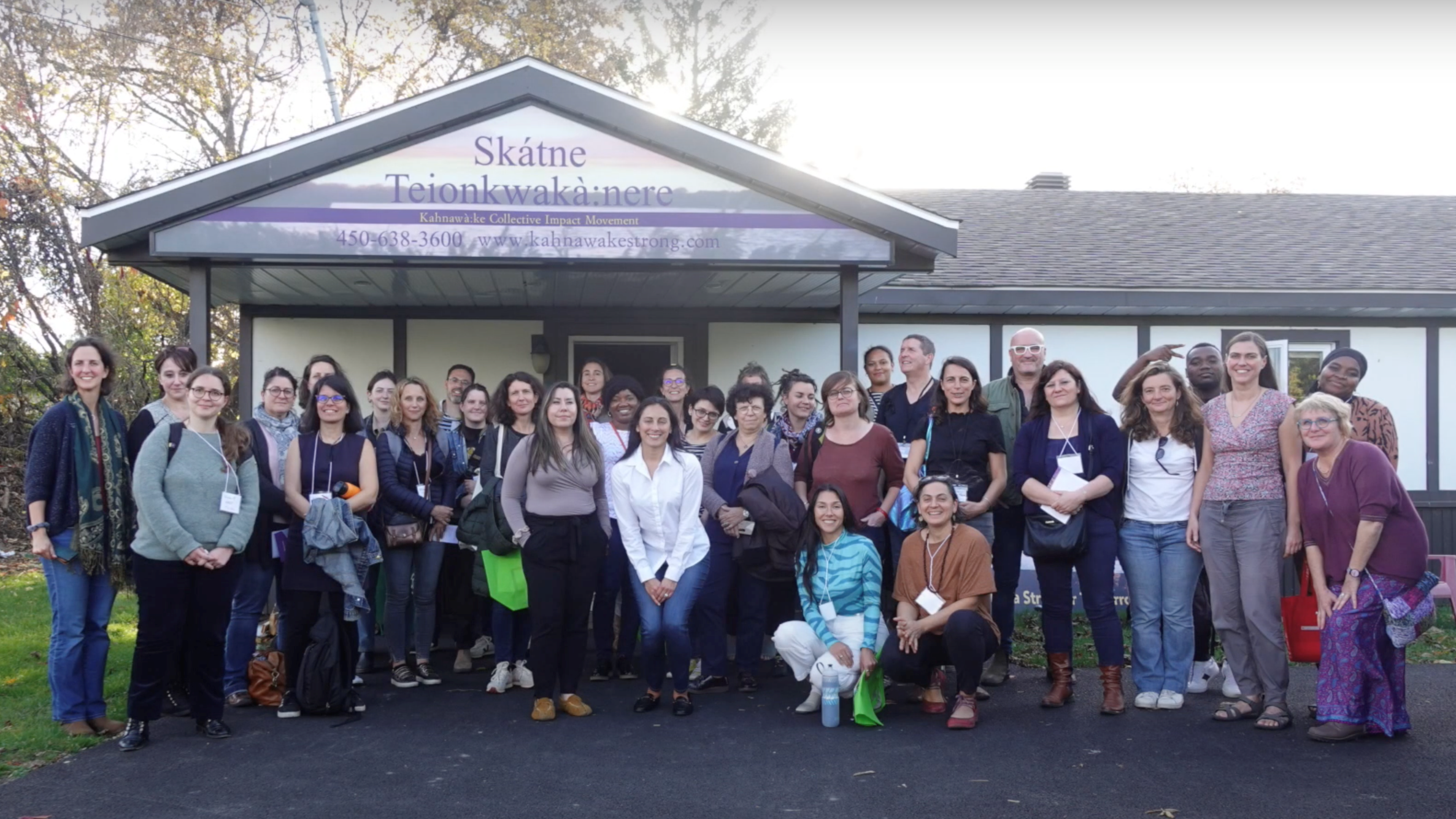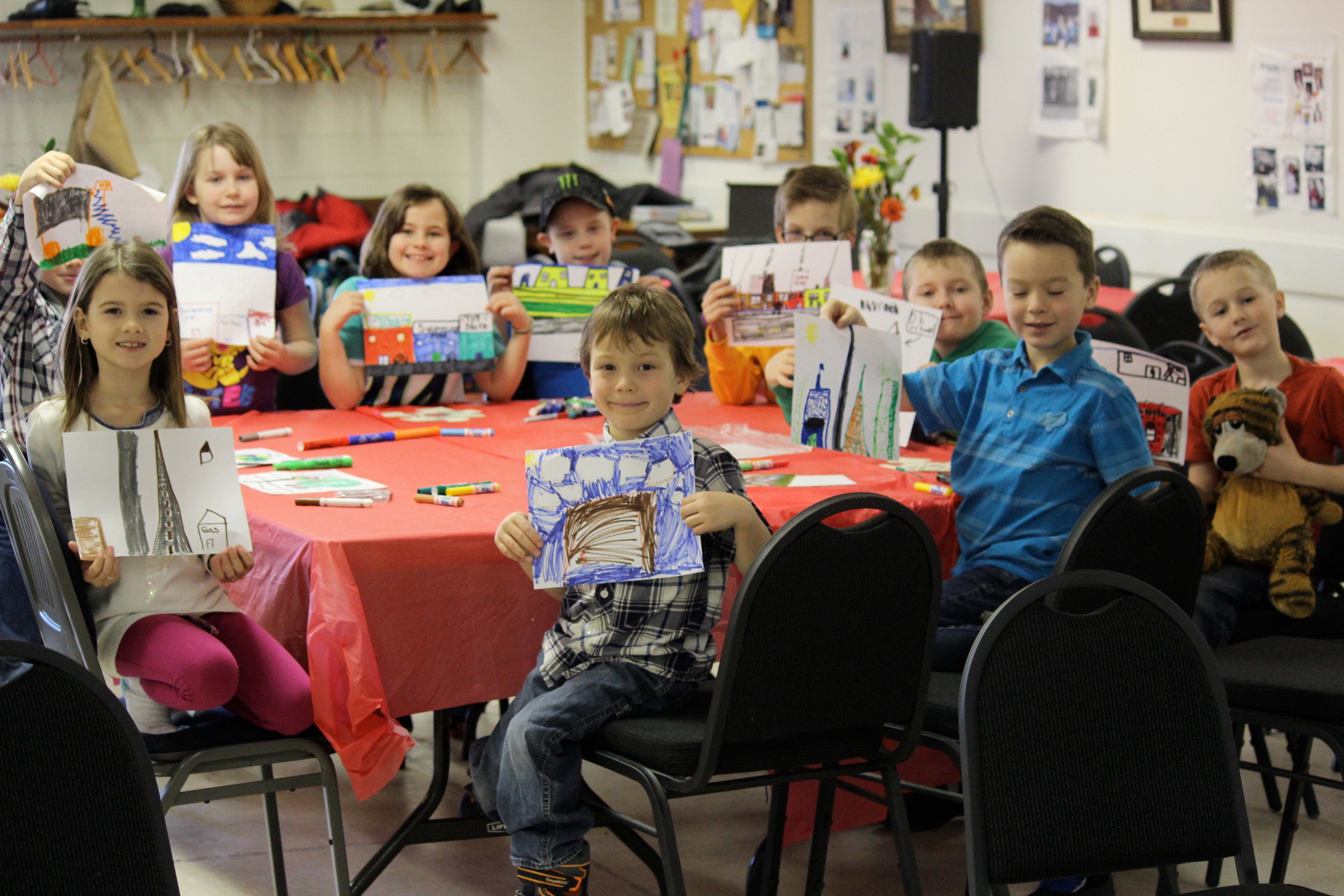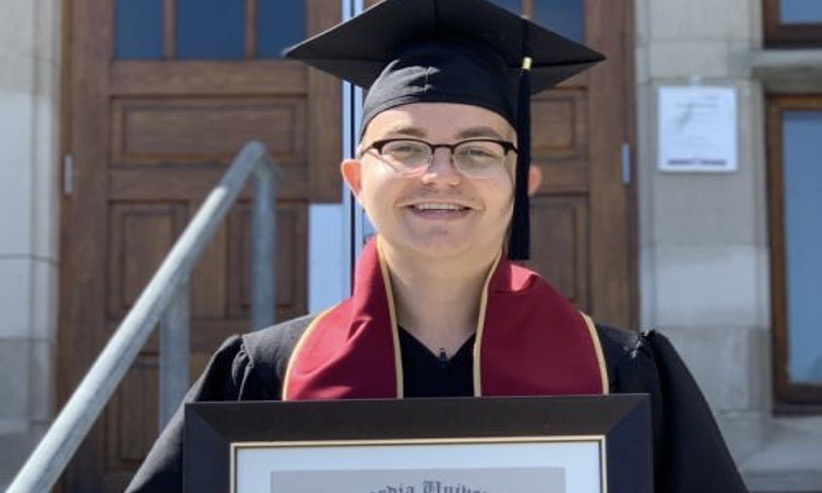The Tamarack Institute is a registered Canadian charity dedicated to ending poverty in all its forms, for good. We support real people and invest in real communities for long-term change.
When we think of belonging, we often think of a place or homeland, associating our identity with a specific environment or geographic community. Yet a place isn't the only element that forges identity and feeds our need to feel part of a community: language is, too.
A Complex Linguistic History
In Canada, we have a complex history with languages. Before colonization, there were more than 70 Indigenous languages spoken here, conceived in harmony with the land, the sea, and the lived realities of their speakers. For example, the Haida language has over 52 words that translate into French as “wave,” and Inuktitut has 8 words for the French equivalent of “snow.”
Following the double colonization by the French, then the English, and the arrival of populations from every corner of the globe, the country's linguistic diversity has been considerably enriched. In addition to the immigrant languages introduced by Allophones (i.e., people who live in a place where the dominant language isn’t their first language, though never applies to First Nations, Métis, and Indigenous language speakers), new languages have emerged, such as Mitchif, a unique language reflecting the singular history of its speakers. Meanwhile, Canadian variants of existing languages have developed, such as Canadian Gaelic, Canadian English, Quebec French, Chiac, and many others.
Keeping Linguistic Diversity Alive
Since the country's creation, concerted efforts have been made by political and social forces to crush this linguistic diversity. These initiatives included Indigenous assimilation policies, such as the Residential School System, the Sixties Scoop, and the execution of Louis Riel. There were also laws restricting the use of French, such as Ontario's Regulation 17, the federal Act of Union of 1840 and the Manitoba school debates. Systematic prejudice against any language other than English, the language of power, also contributed to the erosion of this linguistic diversity, gradually leading to the emergence of a de facto English-speaking country. Today, Canada claims to be a bilingual and multicultural country. However, there are active struggles to keep some languages alive, to restore others, and to gain access to the rights promised in a self-proclaimed “bilingual” country.
Canada's Language Question
The importance of languages is not limited to their use as communication tools: languages also structure the way we think. They enable us to invent, conceptualize, and concretize our ideas. By offering multiple perspectives, they play a key role in social and economic innovation, helping us to imagine and build diverse futures. Languages are also essential vehicles of knowledge, opening doors to various worldviews and distinct ways of existing, providing us with access to enriching insights to guide our decision-making. At the same time, we continue to discover the multiple impacts of languages on our lives. A recent study, for example, revealed a surprising relationship between linguistic diversity and biodiversity, highlighting a remarkable convergence between these two dimensions.1
This is where linguistic justice comes into play. Language justice movements seek to challenge the default dominance of the English language in order to broaden the participation of non-English or limited-English speakers in all areas of public life. This applies to English specifically because, in addition to being a vehicle of colonialism and imperialism, today English has become a kind of unchallenged lingua franca, leading to issues of dominance, Westernization, and neo-colonialism. The notion was originally conceptualized by April Baker-Bell, author of Linguistic Justice: Black Language, Literacy, Identity, and Pedagogy, as a way of naming and dismantling anti-Black linguistic racism and White supremacy in our languages. In a “bilingual” and multicultural country like Canada, this rarely contested dominance poses even more severe and immediate threats.
Using Languages to Foster Belonging
This brings us to the importance of languages towards feeling included, and as vehicles for belonging. By learning the language of their host country, immigrants feel more included in their new country. Hearing their language spoken makes them feel more welcome in a given place. Seeing their language reflected in public services and spaces makes people feel greater respect for their cultural identity. If your language isn't the dominant one, this is a way of creating connections, networking, and building community. Even small interactions and gestures can have a big impact.
Non-English-Speaking Communities
When I was staying in a hotel in Grande Prairie, Alberta, I overheard two people, a couple, speaking French to each other while waiting for the elevator.
“Salut!” I said, before putting on my headphones to listen to music.
“Salut?” they replied. “You speak French? This is the first time we've heard anyone speak French since we arrived!”
“Ah oui? What are you doing here?” I said.
“We're here to visit our son, who found a job here,” they explained. “We were very worried about him, but knowing that there are French speakers here reassures us.”
In addition to the individual value of feeling secure and like we belong, offering spaces where several languages can coexist encourages more equitable and enriching exchanges. Through languages of commerce (Pidgin and Creole languages) that emerged in an era before English dominance of English, we have found ways to communicate across language barriers, across cultures, across customs, and sometimes, even across words. Linguistic justice, like all other forms of justice (social, climate, environmental, economic), benefits everyone: speakers of non-dominant languages and English speakers alike. Rich exchanges support community innovation, collective work, collaborative leadership, and co-designed initiatives - elements that benefit everyone.
Promoting Belonging Through Linguistic Inclusivity
Our world has forgotten what it means to function without a common language, and national and international institutions are rarely accustomed to treating several languages on an equal footing in their exchanges, often privileging one language at the expense of others. At the Tamarack Institute, as part of our efforts to develop a Canada-wide plan to strengthen the sense of belonging in communities, the question of language is inescapable. We are committed to exploring what it really means to create multilingual spaces, starting with French. We've already begun this dialogue with Canada's francophonie outside Quebec and look forward to discovering targeted approaches to fostering belonging through language.
We are aiming to discover how to use language to fight White supremacy, colonialism, and imperialism to create more egalitarian communities where everyone feels they belong; to fight xenophobia and support immigrants in finding a voice in their new country; to fight queerphobia and transphobia through more inclusive language; to fight assimilation of young people by giving them a sense of empowerment and pride; to fight sexism by making women and non-male people as visible in language as they are in society; and to fight climate change by capturing the Earth’s knowledge as its embedded in languages.
How Can You Fight Linguistic Injustice?
At the Tamarack Institute, our mission is to solve major challenges facing communities in Canada and around the world, including ending poverty, building futures for youth, deepening community ties, and fighting climate change. Language, I have no doubt, is one of these challenges.
In conclusion, my question to you is: how can you combat linguistic injustice in your own spheres of influence? Actions can be as ambitious as learning a new language, or as simple as displaying the word “welcome” in the languages spoken in your area to make your spaces more inclusive, and everything in between.
Deepen Your Knowledge
- Watch the recording of the webinar entitled Changemaking in Bilingual Places (also available in French).


